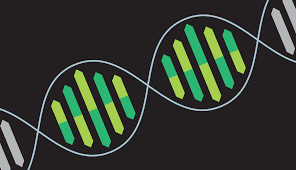There have been numerous genetic studies for sleep disorders in humans, mammals and fruit flies (Drosophilia). Variants in the genes CLOCK, BMAL, OPN4, NFIL3, RORC, BHLHE40, ASMT, CRY1, CRY2 and PER3 can cause circadian rhythm malfunctioning.
A study from 2003 found that a variant of the PER3 gene is associated with Delayed Sleep Phase Disorder. The length of the PER3 gene allele correlates with a person's tendency for morningness or eveningness - "the shorter allele was strongly associated with the delayed sleep phase syndrome patients."
Other studies have had similar findings. In 2014, a Japanese study found that a shorter allele of the PER3 gene is "more prevalent in evening types than in morning types" and in 2010 a British study had the same finding. HOWEVER, the finding was NOT considered conclusive because the mutation was found in just single families, and the results were not able to be reproduced in a Norwegian study. For this reason, the CRY1 variant discovery in early May as a potential marker for Delayed Sleep Phase Disorder was groundbreaking.
On a personal note, a study at UCSF in 2007 found that I have a "very interesting" circadian gene variant. I gleaned from the study's research coordinator that it's a variant of one of the PER genes but policy does not allow them to release information for personal diagnosis. Through 23&Me and Promethease, I've learned about other genetic mutations that affect my sleep - you can read about it here.


